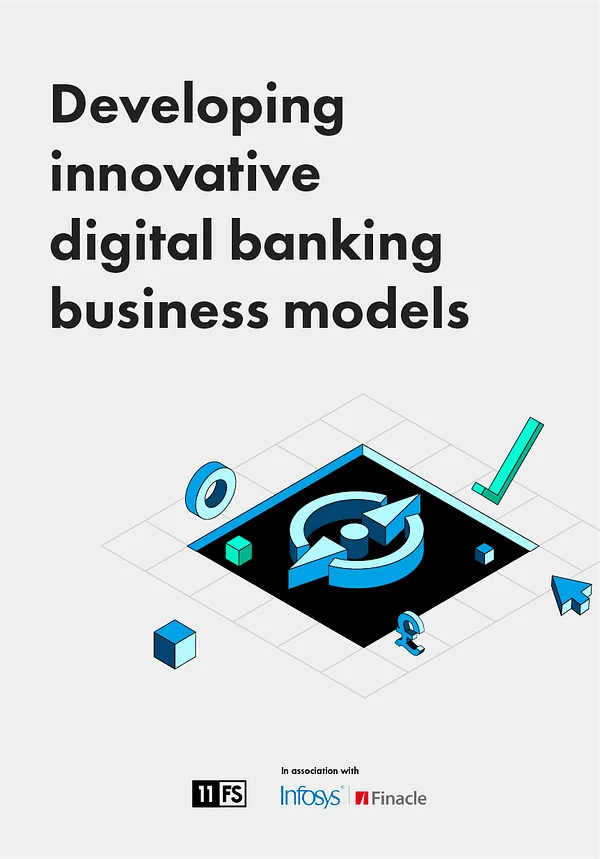After a decade of intense innovation, the mood across global financial services has turned sharply. Optimism has given way to fear and long-term ambition has been shelved for short-term survival.
Across global markets, financial services is no longer asking ‘What’s next?’ but instead ‘How do we weather the storm?’
We’re not just seeing a pause, we’re seeing a cultural pivot — where survival thinking threatens to stall a decade of momentum. Yet within this challenge lies an opportunity to rethink. To innovate with purpose. And to lay the foundation for a more resilient future.
The party’s over
Pre-2021, financial services were drunk on growth. Fintechs attracted $100m+ mega rounds while incumbents fast-tracked digital initiatives, from greenfield banks to crypto plays. The stage was set for a thriving industry that would inevitably continue to innovate, grow, and succeed.
Then the music stopped.
In the wake of the pandemic came inflation, interest rate hikes, supply shocks, and more recently, global tariff wars. A macroeconomic maelstrom that slammed the brakes on innovation and torpedoed business models built on long-term bets. The result has been an almost industry-wide pivot away from transformation towards triage.
The fear is palpable. Fintech valuations have collapsed. Venture funding has all but dried up. Legacy players are slashing experimental product lines and refocusing on core services.
The bold have become cautious.
The industry is making a dangerous bet: that resilience can be built by playing defence alone.
When panic goes viral
In today’s hyper-connected, real-time world, confidence is as fragile as bandwidth—and panic travels faster than regulators can respond.
Unlike in 2008, when bank runs took days or weeks to materialise, we now live in a world where a rumour on social media can spark mass withdrawals within minutes. As we saw with Silicon Valley Bank and Credit Suisse, liquidity crises now unfold at an unprecedented rate. The result is a new kind of systemic fragility—where digital virality, not just bad debt, can crash a bank.
In response, many financial institutions have drastically scaled back transformation agendas. The long game—taking on fintechs, reinventing operating models, and launching digital-first propositions—has been benched.
But in retreating from innovation to prioritise survival, the industry is making a dangerous bet: that resilience can be built by playing defence alone.
The cost of playing it safe
Survival mode may be necessary—but it comes with serious side effects.
First, it kills momentum. Traditional incumbents, under pressure to deliver short-term results, are sidelining R&D in contrast to the digital-native challengers that rose through relentless experimentation. When experiments become expenses, the future becomes harder to build.
Second, it creates a false sense of security. Cutting costs can buy time, but it rarely creates differentiation. As everyone focuses on operational efficiency, product offerings homogenise, and margins tighten even further.
Third—and most critically—it risks disconnecting brands from their customers. Consumers have not stopped evolving. Their expectations, shaped by tech-first sectors like e-commerce and media, are still moving forward, even if the banks and fintechs serving them aren’t.
There’s also the psychological toll.
Organisations that once competed on vision are now bracing for impact. The cultural shift—from “how do we disrupt?” to “how do we not get disrupted?”—is subtle, but corrosive. It risks hollowing out the sense of purpose that animated the past decade of transformation.
And looming on the horizon is AI—a wave as big, if not bigger, than the one digital unleashed.
Laying the foundations for AI innovation
Although many financial companies continue to hesitate to deploy AI broadly—worried it’s not ready for customers—the technology has already transformed the landscape.
Financial institutions must start preparing now. Nobody wants to wake up in two years’ time and realise they don’t have the foundations in place to act.
But incumbents are already on the back foot.
Digital-native neobanks with disruptive cultures and modern technology stacks already have a headstart in terms of readiness to embrace AI and deploy it in new, meaningful ways.
Then there’s the emerging wave of AI-native challengers who are set up to leapfrog existing players and define new battlegrounds in this space that incumbents haven't even thought about yet.
Understanding AI means recognising it’s not one technology but a portfolio of solutions—each suited to different problems. Firms need to educate themselves on what AI can and can’t do, focusing on how it can meaningfully improve the overall customer experience, rather than treating it as a one-size-fits-all fix.
While AI may not yet scale perfectly across millions of users, the priority is balancing practical deployment now with a long-term vision to fully harness its potential.
The most resilient organisations are those that adapt without losing forward momentum.
A reset moment
What financial services needs now is not a return to wild experimentation—but a smarter, more grounded form of innovation.
Now is an opportunity for banks, fintechs, challengers, and everyone in between to:
- Refocus innovation on real problems - Consumers and businesses are under pressure too. There's a growing appetite for products that help them manage risk, cash flow, and uncertainty. Brands that lean into helpful innovation—not just shiny UX—can still grow.
- Build for relevance, not just reach - The playbook for success is not what it used to be. Large, sweeping transformation programmes may be out—but sharp, specific relevance is in. Think contextual finance. Think value-added services. Think partnerships that actually serve end users.
- Balance boldness with survival. It’s not a binary choice. Firms can be commercially pragmatic while still making progress. They can double down on efficiency and explore AI applications. They can stabilise the core and prototype new value around it.
Even in a downturn, the most resilient organisations are those that adapt without losing forward momentum. That stay commercially rigorous without abandoning curiosity.
This is how the best in the industry are operating now. Not by spending more—but by spending smarter. Not by doing everything—but by doing the right things really well.
The firms that emerge stronger from this moment will be those that resist panic and continue to solve real customer needs. Those that keep testing, building, and moving—just with more purpose than before.
Innovation isn’t over. But it is evolving. And survival doesn’t mean standing still. It means adapting fast—and not losing sight of what made the last decade so powerful: boldness, creativity, and the belief that better is always possible.
Tap into award-winning insights and strategies
Who better to realign your digital strategy with than the five-time Consultancy of the Year? That’s right - Accenture, Capgemini, Deloitte, CapCo, and the other so-called big names lost out to “little” 11:FS because we deliver impact - that’s why our clients voted for us.
We’ve helped brands around the world research, design, and launch winning digital propositions and we’re ready to help you focus your innovation efforts to become more efficient in an industry that demands it more than ever.
But that’s enough talk. Let’s get moving.





.svg)
.svg)

.png)




